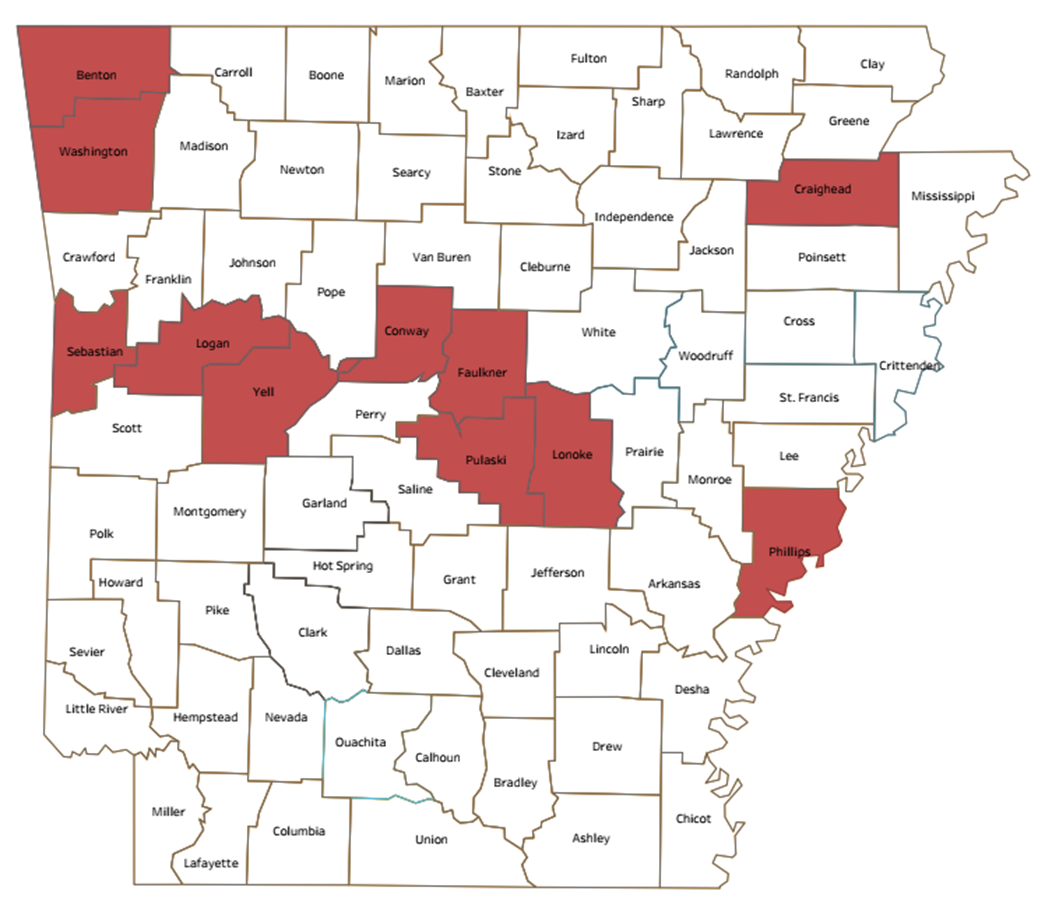Veterans Treatment Court is a voluntary, fourteen-to-eighteen month, multi-phase intervention program for veterans involved in the criminal justice system due to underlying, unmanaged substance use or mental health disorders. Veterans Treatment Courts connect veterans involved in the criminal justice system to benefits and treatment they have earned, saving their lives, families, and futures while effectively preserving tax dollars. Together in a collaborative effort, several local, state, and federal agencies work together to provide substance use and mental health treatment and intensive judicial supervision to assist veterans in achieving healthy, stabilized lifestyles. Veterans Treatment Court involves frequent court appearances, random drug/alcohol testing, group and individual counseling, and intensive community supervision.
Veterans Treatment Courts strive to increase public safety, decrease the incarceration of those with substance use or mental health disorders, and improve the quality of life for veterans, families, and the community.

Veterans Treatment Court Team:
A dedicated multidisciplinary team of professionals manage the day-to-day operations of Veterans Treatment Court, including reviewing participant's progress during pre-court team meetings and status hearings, contributing observations and recommendations within team members' respective areas of expertise, and delivering or overseeing the delivery of legal, treatment, and supervision services. This approach involves the cooperation and collaboration of traditional treatment court stakeholders with the addition of representatives from The United States Department of Veterans Affairs, veterans' support organizations, and veteran peer mentors.
The Veterans Treatment Court team is comprised of representatives from partnering agencies involved in the program, which includes the following:
- Judge
- Program Coordinator
- Prosecuting Attorney
- Defense Attorney
- Treatment Provider
- Probation Officer
- Law Enforcement Liaison
- Veteran Mentors and Mentor Coordinators
- Veteran Justice Outreach Specialist
Eligibility Criteria:
To be eligible for a Veterans Treatment Court:
- The person must be an adult;
- The person must be charged with a criminal offense;
- The person must be a veteran or service member of the United States Armed Forces or National Guard;
- The person must have a mental health or substance use disorder and must be identified as clinically appropriate as determined by a validated clinical assessment tool;
- The person must be identified as high-risk/high-need as determined by a validated risk-need assessment tool;
- The person must be approved for admission by the Veterans Treatment Court team.
Admission Process:
- Step One: Application - A person or defense counsel may apply to Veterans Treatment Court through the program coordinator.
- Step Two: Preliminary Prosecutor Approval - The prosecuting attorney will determine if the person's pending case(s) and criminal history meet eligibility criteria.
- Step Three: Risk-Need Assessment - The person will complete a risk-need assessment.
- Step Four: Clinical Assessment - The person will complete a clinical assessment.
- Step Five: Team Review - The Veterans Treatment Court team will review the person's information, including the risk-need and clinical assessment findings, to determine program appropriateness.
Veteran Mentor Program
In Veterans Treatment Court, volunteer veterans engage, encourage, and empower fellow veterans to change their lives, ensuring that together we will "leave no veteran behind." Veteran mentors provide camaraderie and veteran-to-veterans support, such as navigating housing, employment, disability compensation, and transportation needs. In 2015, Justice for Vets launched the National Mentor Corps to provide professional development for volunteer veterans interested in working with Veterans Treatment Courts.
To learn more about becoming a veteran mentor or to enroll in a mentor professional development course, please click here.
Resources for Veterans and Families
Every U.S. Department of Veterans Affairs Medical Center in the country now has a Veterans Justice Outreach (VJO) Specialist whose job is to liaise with veterans involved with the local criminal justice system. To locate your local VJO, please click here.

For immediate crisis support, please click here.
Veterans Treatment Courts are subject to evaluation by the Specialty Court Program Advisory Committee under A.C.A. §16-10-139.